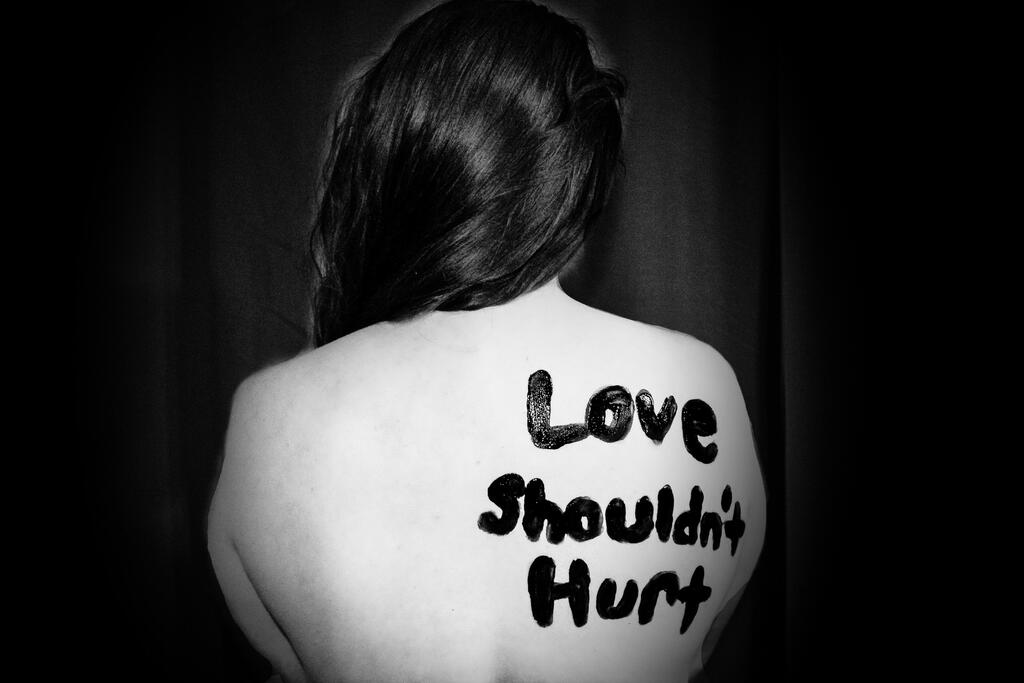 There’s no feeling like it in the world when you find your true love and soul mate. It’s one of life’s happiest moments when you think you’ve found ‘the one.’ But fall for a narcissist, and you are embarking on an emotional rollercoaster ride with brutal twists.
There’s no feeling like it in the world when you find your true love and soul mate. It’s one of life’s happiest moments when you think you’ve found ‘the one.’ But fall for a narcissist, and you are embarking on an emotional rollercoaster ride with brutal twists.
A narcissist is a supreme actor, a con artist if you like. They will charm their way into your life and put on a great show of being logical and rational. They will make you feel like a million dollars, and you will genuinely believe they are falling head over heels in love with you and you with them.
Those beguiled do not know the emotional abuse that is coming.
So, what is narcissistic abuse, and how do you heal from it?
Narcissistic abuse is primarily emotional abuse, though there can be physical and sexual abuse involved too. It comes from a specific type of abuser, namely a person with narcissistic personality disorder (NPD).
The abuse from a narcissist typically involves insults, put-downs, verbal abuse, name-calling, accusations, harsh criticism, silent treatment, and threats. A narcissist will continually gaslight, contradict, and seek to control. It doesn’t happen overnight. After the honeymoon period, emotional abuse creeps in insidiously.
A person with NPD is hyper-critical and judgemental, ignores boundaries, invades people’s privacy, and acts possessively. They cleverly manipulate people for their own ends. Above all, they lack empathy. All of this will be hidden in the early stages of a relationship, though there may be some subtle red flags.
It’s a confusing time being entangled with a narcissist because of their manipulative behavior. They are needy. Lots of love bombing, dramatic make-ups, and promises straddle abusive episodes, so it can be a difficult relationship to end.
One of my friends endured the most terrible emotional abuse. People asked him, why didn’t you walk away? But you don’t see it coming. Everything gets twisted. You believe the lies and that everything is your own fault. It sneaks up on you, and you wonder how did I get here? One day he fell in love with the most charming and delightful person before he knew it, he was being controlled. He was manipulated into making contact with friends and family. He was in a relationship, but actually, he was alone. His self-worth hit the floor. He felt destroyed. He went from being a happy-go-lucky person to someone who was afraid and broken within five months.
This is a familiar pattern for anyone blindsided by a narcissistic partner. Being in a relationship with a narcissist is a toxic and traumatic experience. In fact, just exiting the relationship and cutting off all contact with a narcissistic partner often isn’t enough to heal the damage done.
Why do narcissists behave the way they do?
Firstly, it is essential to understand that narcissists function differently from normal people. While the exact cause of NPD is unknown, it is thought to stem from a combination of genetic predisposition and early childhood experiences, such as overprotective or neglectful parenting, childhood trauma, and psychological factors.
Narcissists believe they are special. They appear ultra-confident and charming, but underneath lies fragile self-esteem and a sense of inadequacy. Narcissists are driven by a sense of emptiness. Their behavior is all about distraction from their own flaws and getting their own needs met. As a result, they are compelled to control their environment, including the people around them.
Narcissists have an inflated sense of self-importance and an intense need for attention, praise, and admiration. They are obsessed with the image they present to the world. Because their sense of self is determined by what others think of them, they try to control how others behave towards them. They are artful manipulators.
Ultimately, narcissistic behavior is rooted in the overwhelming resistance to experiencing vulnerability. A narcissist is disconnected from this fact. As a result, they lack self-awareness and instead feel a sense of entitlement. A lack of empathy means they are free to exploit others without any sense of guilt.
How Can You Heal from Narcissistic Abuse?
If you have found the courage to end an abusive relationship with a narcissistic personality type, you are likely feeling a whole host of emotions. You may feel overwhelmed, anxious, fearful, stressed, lost, numb, panicked, or disoriented. You may even feel guilt or anger.
You can heal from your experience, but it will take time. Toxic relationships can make you feel like you are mad, that it is your own fault, or caused by your own issues.
It is common to experience anxiety and depression after experiencing narcissistic abuse. Narcissistic victim syndrome, akin to post-traumatic stress disorder (PTSD), is real. Signs you have suffered severe relationship trauma include:
- Sudden panic attacks that come from nowhere
- Difficulty sleeping
- Inability to concentrate
- Nightmares and flashbacks
- Hypervigilance
- Low self-worth
- Isolating oneself
- Feeling shame
You can take several steps to care for yourself, but seeking the help of a specialist trauma therapist is essential to heal the trauma and break the cycle of self-doubt and shame. Here are some considerations and self-care tips to support you during your healing journey.
Don’t try to understand your abuser.
It is perfectly natural for you to want to understand what has happened and to try and make sense of your experience. But to understand the actions of a narcissist is an impossible task. You will be trying to apply logic to an utterly illogical situation. Trying to understand your ex-partner’s irrational actions will get you nowhere. The first step in your recovery is to let go of your desire to understand your ex.
Don’t fixate on where things went wrong.
During your relationship with a narcissist, you will have experienced a lot of contradictions that will have ebbed away at your self-esteem. For example, your ex will almost certainly have gaslighted you into believing they were behaving in a supportive way when their actions were playing out the opposite. You would have felt unsupported while being told that you were being supported.
It will leave you feeling confused. People who’ve experienced narcissistic abuse can become trapped in a fantasy, dwelling on how things could have been. You will be drawn to your early relationship experiences when it was romantic, exhilarating, and intense.
Just like in step one, your second step is to let go. Let go of what could have been.
Honor time to grieve.
Once you have cut off all ties with your abuser you will likely feel profound grief. Mourning after narcissistic abuse is complex, often moving through several stages, from shock and disbelief to anger, depression, and finally, acceptance and relief. There is power in honoring each phase and allowing time to grieve.
Forgive yourself.
If you let it, the nightmare of narcissistic abuse could define your life. Part of your recovery is learning to love yourself again and to forgive yourself for becoming involved with an abusive partner. Self-forgiveness and self-acceptance are essential parts of the healing journey.
On the surface, you may not connect with this idea — that you must forgive yourself! After all, you weren’t the abuser. But when you have been in an abusive relationship and experienced coercive control, a default reaction is to blame the self.
Self-forgiveness feels awkward to many, but it’s a vital part of healing and will help you to move forward. So begin by having some compassion for yourself.
Practice self-care and look after your health.
Self-care is all about building a sense of worthiness. Since self-worth is obliterated in psychologically abusive relationships, self-care is a critical aspect of healing.
Self-care can come in many forms, from journaling, meditation, yoga, exercise, and spiritual practice, to mindfulness and walking in nature. Don’t be afraid to explore types of exercise or activities you haven’t done before.
Taking care of your health will also increase your ability to cope with the stress of your traumatic experience. This means getting enough sleep, eating a healthy balanced diet, avoiding alcohol and drugs, scheduling time for relaxation, and doing the things that bring you joy, whether that is going to the cinema, walking at the beach, or taking yourself off on a retreat for an emotional detox.
Don’t isolate yourself!
Following trauma, it is a common reaction to want to withdraw from others, even close friends and family. You may need time alone to heal your wounds, but isolating yourself isn’t a good idea.
Connecting to others is a big part of your healing and will help to rebuild trust. You don’t have to speak of your trauma to everyone, though it may help to talk about your experience with someone close that you trust. Engaging with other people may feel like a difficult step, but it will bring some comfort and help reinforce a sense of acceptance so that you can move on with your life.
Get in touch with old friends, participate in social activities, take a class, join a club or volunteer. Do whatever will help you to connect to other people. It may help you to join a victim support group for people who have experienced narcissistic abuse.
Seek professional help.
If you have lived with or spent a significant amount of time with a narcissist, it may feel like you will never be the same again. You can heal from narcissistic abuse, but it is a long and painful road. You will have to process and deal with a lot of hurt and emotions. That’s why seeking professional help is imperative.
Recovery can take years because the psychological violence inflicted is deeply traumatic. Emotional scars run deep, and you may have post-traumatic stress disorder (PTSD) and CPTSD; it will take time and specialist therapeutic work to unravel.
Also, be aware that it is not uncommon for victims of narcissistic abuse to experience a longing for their abusive partner, a bit like an addiction to drugs. This emotional pain can be extreme and cause some people to self-harm. Working with a therapist, you can avoid this happening.








2 Comments
This is a very good article and I am extremely grateful to have came across it. Reading this article made me realize that I have been on a healing journey from my narcissistic ex for going on three years now. Not only him, but my past from sexual abuse as a child and into my adult hood experiencing other NPD, and physical abusive relationships. I can definitely say it is a long and pain journey, but the peace, joy and wisdom that comes from it all is gratifying to self.
I didn’t know there was a name. I now know what was going on with me. I thought once we were completely done. It would be over. This article put it into words for me. I’m healing!!!